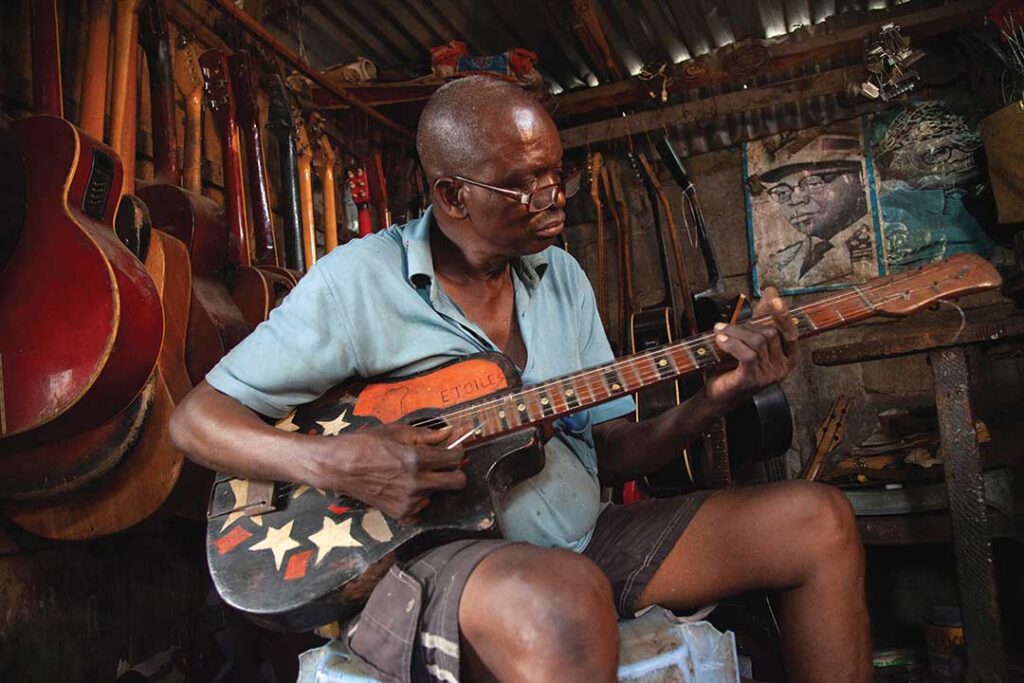REUTERS
In a tin shed off the backstreets of Kinshasa, the Democratic Republic of the Congo’s (DRC) capital, a barefoot 61-year-old Jean-Luther Misoko Nzalayala, known as Socklo, hacks with a machete at a lump of wood that is starting to resemble the neck of a guitar.
Later, he hammers bits of white plastic from a chair into it as inlay to help guide players around the fretboard, and he uses threads of motorcycle brake cable as strings.
For more than 40 years, the self-taught instrument-maker has used a variety of recycled materials and local hardwoods to create guitars. Socklo’s passion began in his DRC village of Kikwit in 1975, when
he dismantled and copied a guitar a friend had
given him.
Three years later, he moved to Kinshasa, where he sold his first guitar to his cousin. “I couldn’t imagine that people in a city like Kinshasa could like a guitar like this. It gave me courage.”
He used negative feedback to improve his craft and finesse his designs. Soon, local and international musicians were flocking to his tin shed.
Congolese music star Jupiter Bokondji loved the sounds of Socklo’s guitars and asked him to go electric. The result, Bokondji said, is far more authentic than top guitar brands, which cost up to 20 times more.
“I have played it all over the world; everyone is amazed,” Bokondji said. “To see that guitar doing what it does, the way it plays, it’s like a tornado.”
Yarol Poupaud, a French guitarist who toured with rock ’n’ roll singer Johnny Hallyday for years, has bought four of Socklo’s creations.
“It has little imperfections; it’s not perfect, but that really makes the magic,” Poupaud said, strumming on a blue starburst guitar emblazoned with the DRC’s flag.

